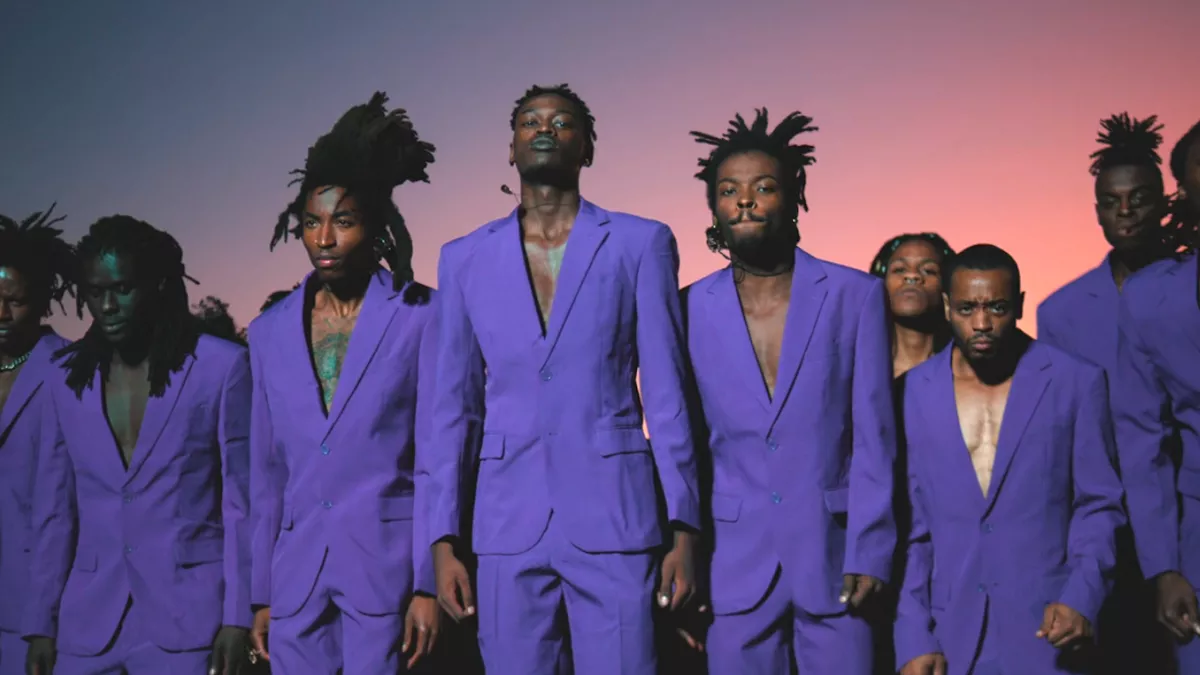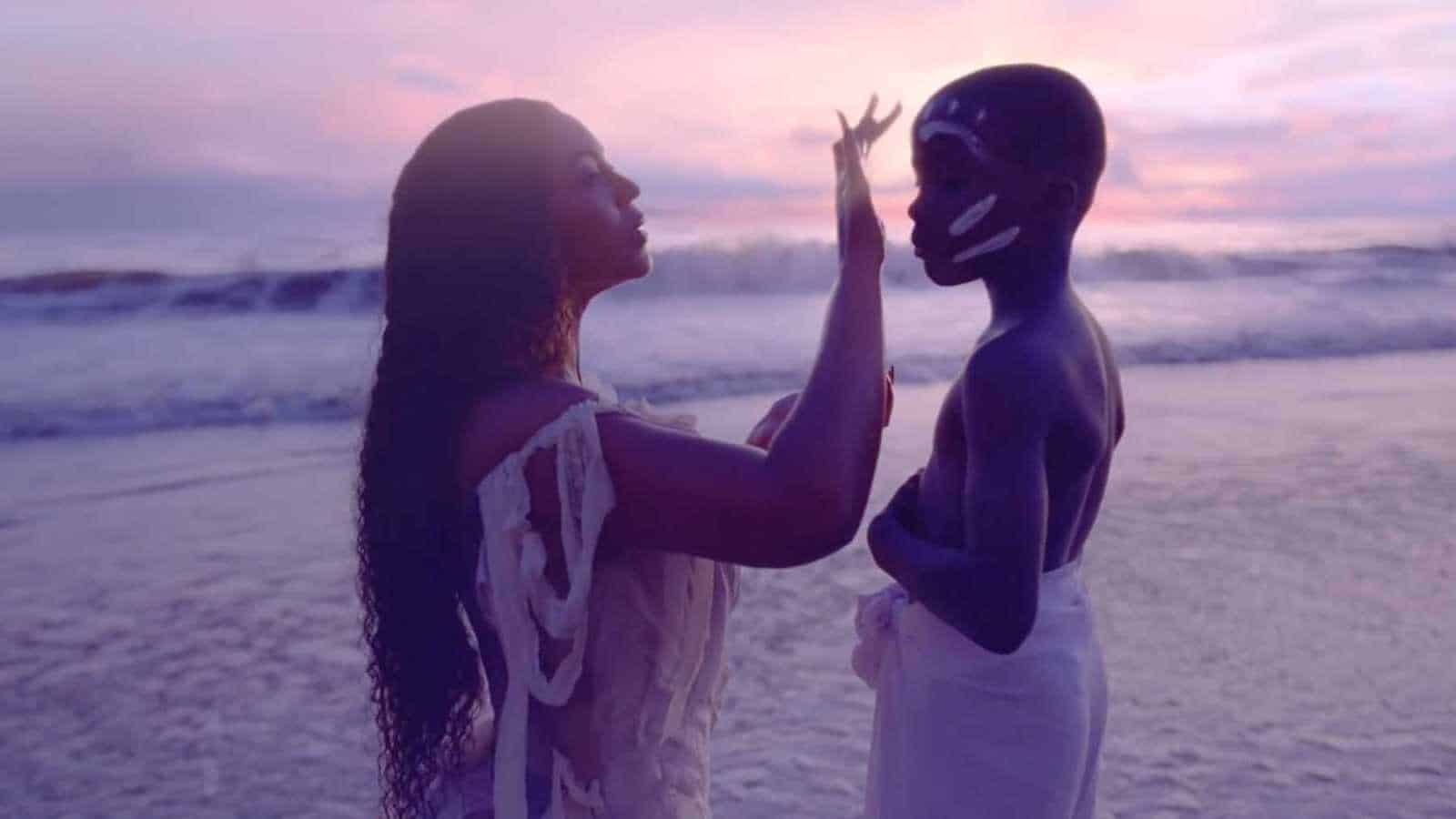With the relentless torrent of unnecessary live-action remakes that Disney has been pumping out as of late; it’s a sight for sore eyes (and ears) to consume anything remotely different from the House of Mouse.
Like a mirage leading to an oasis, we got our first taste of the spring of Black Is King in the aptly titled The Gift. Releasing alongside the debut of The Lion King remake in 2019, The Gift is a phenomenally produced and sonically dynamic album inspired by the plot and themes inherent in the 1994 original. And it’s satisfying to finally put visuals to the music, as the film felt like a victory lap for all those involved in its conceptualisation.
Just how the standalone album is an amalgamation of ancestral and modern African and American music genres, so too does Black Is King expand upon these themes in its visuals. The set design and locations exhibited were at the best of times, absolutely stunning; evoking surrealist fantasy films of the 70s with an expansive display of contemporary and traditional African cultures.
The spectacle in itself is worth a watch. The garments interlaced seamlessly with the choreography, sharing a dynamically mutual and symbiotic relationship with one other; and at times, totally eclipsing other aspects of the production. These visuals flourish in Black Is King and make it an experience worth rewatching.

However, It was the emotional gravitas of the production that made it so compelling. Instantly from the first two numbers “Bigger” and “Find Your Way Back” had me biting my lip, fighting back tears; mercilessly assuring me to surrender, and to leave whatever preconceived notions I had at the door. Beyoncé really wanted me to soak in the vibes and to flow in its waters.
Thankfully though, the deep, existential, soul tugging moments were interspersed with some lighter, joyous sections as well as a few darker and moodier elements too. Yet every musical number had an overarching core message strewn alongside it, regardless of context or thematic exhibition; that of pride in who you are, what you represent, and the strength within that knowledge.
With such a heavy emphasis on the relationship between the lineage and ancestry, it’s not surprising seeing how many references to African spiritualism, mysticism and biblical roots that seep into Black Is King; be it in references to deities such as Oshun and Hathor, to biblical figures like Moses and the Virgin Mary (just to name a few). On all levels, the influences aren’t subtle, nor were they ever meant to be. Above all, the presence of the Moon, its phases, and the allusions to water reflect the themes of maternal support, the ever-evolving journey of the self, and the emotional fluctuations one must go through in life.
I will say, the premise wasn’t the easiest to follow (and would have benefitted from a more structured narrative cohesion for the intended audience), but it can rest on the laurels of The Lion King’s influence quite comfortably. That being said, Beyoncé and crew had me emotional multiple times during the run-time.
In some visuals and songs (the biggest culprit during “Mood 4 Eva“) where the African foundations they built upon felt more aesthetic than substance – It’s apparent that this film is Africa through an American lens. Its underlying purpose being a spotlight for African talent, and as an accessible bridge for black children in the US and around the world to connect to African media and ultimately an interest in their heritage (as is evident by an American Flag embellished in Pan-African colours).
It must be said that representing an entire continent within the bounds of 14 tracks, 85 minutes run-time, and all-the-while adhering to the narrative arc of The Lion King is an unenviable task. The film prominently highlights Nigerian and South African sub-cultures, locations and flags over most, with little to no grounded representation for the nations along East Africa – perhaps due to the lack of East African collaborators on the album itself.
Black Is King was predominantly more of a Beyoncé production, rather than solely being a contemporary African centric rendition of The Lion King that I assumed it would be, based on the marketing behind this project. And perhaps the range of focus during production was too broad in scope to synchronise all the visual and lyrical content tightly. Some parts of the film flowed effortlessly from one song to another, guiding you by hand on this journey. And at other times (even in moments that I enjoyed and remember the most), they felt loosely connected to the plot; tethered to an idea rather than the overarching narrative.
Nevertheless, the feat is no less immensely impressive, the performances spectacular, and the effort in the organisation and behind-the-scenes work is evident. Undoubtedly, Black Is King along with The Lion King: The Gift has become my personal favourite Beyoncé lead production to date.
Become baptised by Beyoncé’s Black Is King, out now on Disney+.
Soundtrack The Lion King: The Gift on Spotify, YouTube Music, and Deezer.
- 2814 ‘Voyage/Embrace’ Review – The Journey IS The Destination - September 30, 2020
- Hogwarts Legacy: A History of the Highly Anticipated Harry Potter RPG - September 23, 2020
- Next-gen Xbox – Decoding the Future of Microsoft Consoles - September 13, 2020



